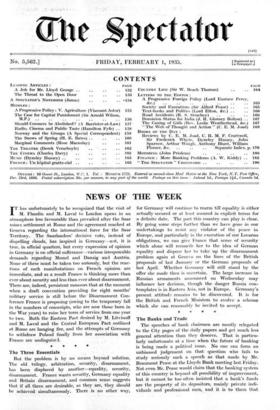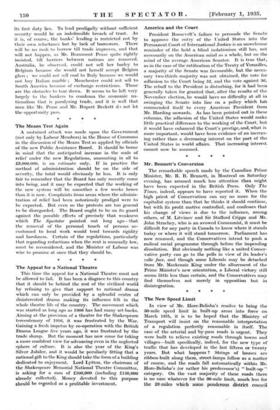The Banks and Trade The speeches of bank chairmen are
mostly relegated to the City pages of the daily papers and get much less general attention than they deserve. That is particu- larly unfortunate at a time when the future of banking is being made a political issue. No one can form an unbiassed judgement on that question who fails to study seriously such a speech as that made by Mr. Beaumont Pease at the Lloyds Bank meeting last Friday. Not even Mr. Pease would claim that the banking system of this country is beyond all possibility of improvement, but it cannot be too often insisted that a bank's funds are the property of its depositors, mainly private indi- viduals and professional men, and it is to them that its first duty. lies. To lend prodigally without sufficient security would be an indefensible breach of trust. As it is, of course, the banks' lending is restricted not by their own reluctance but by lack of borrowers. There will be no rush to borrow till trade improves, and that will not happen, as Mr. Beaumont Pease quite rightly insisted, till barriers between nations are removed. Australia, he observed, could not sell her barley to Belgium because she would not herself accept Belgian glass ; we could not sell coal to Italy because we would not buy Italian marble ; Manchester could not sell to South America because of exchange restrictions. Those are the obstacles to tear down. It seems to be left very largely to the bankers to condemn the economic na- tionalism that is paralysing trade, and it is well that men like Mr. Pease and Mr. Rupert Beckett da not let the opportunity pass.















































 Previous page
Previous page